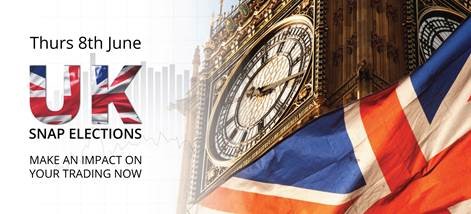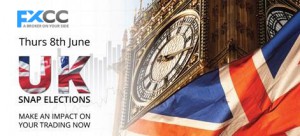The key political parties
In the last 2015 General Election held in the U.K. the current government the Tories (Conservatives), received 38% of the national vote, the Labour Party gained 31%, Liberal Democrats 8%, UKIP 13%, Green Party 4%, SNP 5%.
There are 650 ‘seats’ in the UK’s lower House of Parliament, seats relate to where individual MPs will ‘sit’ in the chamber. The lower house is referred to as the “House of Commons”. This is the arena which the various political parties are fighting for control of, it’s where they debate policy and then vote for it.
The Tory manifesto.
The election campaign has not gone the Tories’ way; their manifesto (the published pledge on which their pitch to the electorate campaign is made), has been roundly ridiculed by the mainstream media in the UK. The manifesto introduced a new social care charge for the elderly, but failed to place a cap on the cost. The Tories also intend to take away what’s termed a “winter fuel allowance” of £300 each year for the majority of pensioners; a payment that universally goes to every pensioner in the UK. They also intend to remove the guarantee that pensioners will enjoy higher social pensions, by way of the current “triple lock” guarantee.
Jeremy Corbyn’s rise
Now this election is not all about the Tories dropping the ball with their manifesto, the Labour Party is being led by a politician who, despite being originally maligned by the mainstream media, is now proving to be incredibly popular with voters. Jeremy Corbyn was elected, not once but twice, by Labour Party members as their leader and has been a parliamentarian for approx 35 years, dedicating himself tirelessly and selflessly to politics during that time.
The Labour Party manifesto is completely costed; the sums add up. They also intend to raise tax for 5% of the population, raise corporation tax back to the 2010 levels, nationalise critical services such as: railways, water, gas and electric supplies, abolish university fees, protect pensioners and create an investment bank (capitalised with £250b), in order to create jobs and rebuild infrastructure.
Current polling situation
As of May 31st – June 3rd the 24 point You Gov lead from April had shrunk to 3. Moreover, in other calculations You Gov suggest that if you strip out the weighting (the allowance for age, likely turnout, other demographic adjustments etc.) and use only pure mathematical data, then Labour are actually ahead, 43% to 40%. They even went further; citing that the results of a massive poll they conducted, by way of circa 50,000 interviews, results in the Tories failing to have the majority of seats in the House of Commons.
Recent fluctuations in polling and its effect on the FX and equity markets
As the polls have narrowed, or on the occasions when the Tories have shown a short burst of popularity and the polls have widened in their favour, the value of sterling has either risen, or fallen, but so far the gyrations in value of sterling versus the majority of its main peers has been relatively modest. The reasons for this relative stability within a range are various and curious; many of the market commentators and analysts are still safely predicting a Tory victory and certain major investment banks have been making statements regarding the outcome.
What is a “hard’ Brexit, what is a “soft” Brexit
Soft Brexit
A soft Brexit would involve appealing and negotiating with the UK’s 27 other peer European countries to ensure the damage to the UK’s economy is minimal. This would involve ensuring that trade is kept as close to being tariff free as possible. One of the biggest challenges the U.K. faces is to ensure that no extra costs are placed on British businesses who trade with Europe, once the country exits the European Union, trying to protect tariff free movement is essential.
Hard Brexit
By contrast the hard Brexit option appears to be favoured by the Tory party and in particular Theresa May, who has constantly used the phrase “no deal is better than a bad deal” and has appealed to the hard right of the UK’s political spectrum, a space formerly filled by a party called UKIP.
The hard Brexit appears to represent an intransigent position whereby the U.K. could not retain access to the European market, be subject to tariffs and operate under what’s termed WTO rules (world trade organisation) terms, that would be considerably worse than the current tariff free trade that Britain currently enjoys, as a current member of the European Union.
What to expect on the UK’s General Election night once markets open
Exit poll
By far the most important poll before the general election result is announced, is what’s termed the “exit poll”. U.K. citizens still use an antiquated system of manually voting in ballot boxes and these ballot boxes are housed in, for example; libraries, schools, town halls, village halls etc throughout the U.K.
Election officials, not directly employed by the UK’s government, then count the votes and deliver a result (on a local basis), for the local MP to eventually be announced.
The first results will begin to be announced at approx 11pm U.K. time. Generally constituencies in the North East of England, such as Sunderland and Newcastle, pride themselves on being the first to announce which local representative has won on behalf of their party, the winner then becomes the MP, who gets to represent their constituency at parliament.
A hung parliament.
Many analysts are suggesting that the Labour Party would now find it impossible to win the election, even if they beat their best recent performance and obtained 43% of the national vote, they’d only just gain a majority. Whereas the Tories, with approximately 38% of the vote, could win and slightly increase their majority. With 38% Labour would find it difficult to achieve a majority of 326 seats. Therefore, possibly the best Labour could achieve, would be to prevent the Tories winning and then holding the balance of power by teaming up with other parties.
FX, commodity and equity market potential moves
It’s highly unlikely that whatever the result, the USA equity markets, or commodity markets will experience secular U.K. election based volatility, the UK’s main FTSE market will probably react. A hung parliament, as opposed to a definitive result, could cause the indecision which markets dislike, especially if the negotiations regarding the eventual hung parliament’s make up, takes several days to coordinate.
However, FX markets may fluctuate considerably as various local winning MPs are announced; from approximately 11pm on Thursday right, through to the early hours of Friday morning. If certain key seats transfer from Labour to Tory, or vice versa, then we could see some dramatic swings in sterling during the night and traders should be constantly mindful of the fact that thin liquidity during the Sydney and Asian trading sessions, could accentuate any possible spikes.



